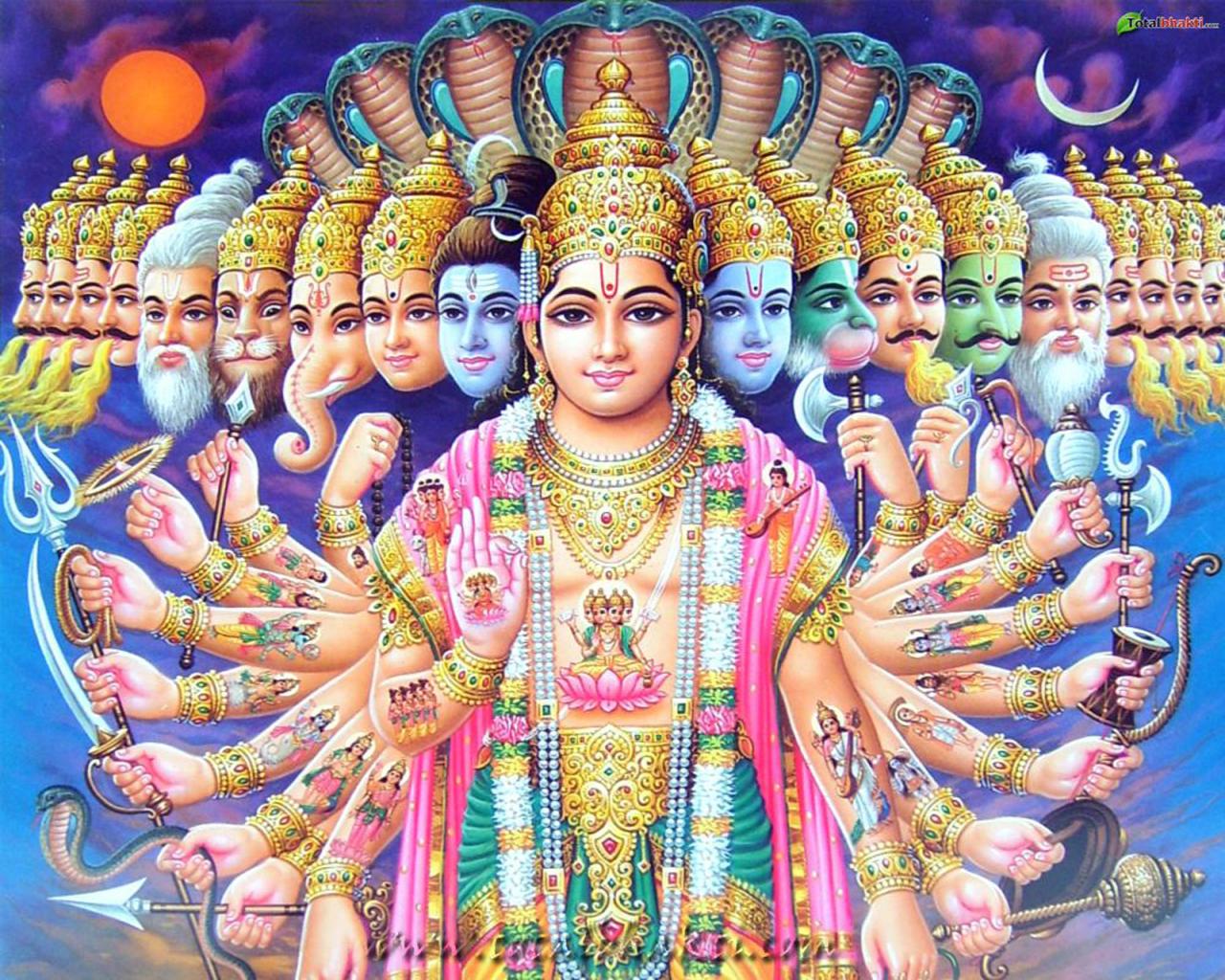Understanding the deities of Hinduism
 After our class on Thursday I felt
that I did not grasp the concept of Hinduism and its deities. After a fair bit of online reading I came to
realize that there are several basic principles: karma, reincarnation, dharma,
and all pervasive divinity. Karma is the idea that good intentions and good
deeds contribute to good karma and future happiness, while bad intentions and
bad deeds contribute to bad karma and future suffering. Reincarnation is the
idea that the body may die but the soul is transferred or reborn, into another
body until it is let out of the circle of death and rebirth and transcends. Pervasive divinity was defined in the video A Short introduction to Hinduism posted
by BhahavadGita: “All worship the one all-pervasive supreme being…God is unmanifest,
unchanging and transcendent; the self-god: timeless, formless and spacelss . As
pure consciousness, god is the manifest primal substance of pure love and
light; flowing through all form, existing everywhere time and space as infinite
intelligence and power. As primal soul, god is our personal lord, source of all
three worlds, our Father-mother-god, who protects nurtures and guides us. We
beseech god’s grace in our life by knowing he/she is the essence of our soul,
the life of our life.” This is the idea of Bhraman. All of the other deities
are different manifestations and parts of this ultimate deity.
After our class on Thursday I felt
that I did not grasp the concept of Hinduism and its deities. After a fair bit of online reading I came to
realize that there are several basic principles: karma, reincarnation, dharma,
and all pervasive divinity. Karma is the idea that good intentions and good
deeds contribute to good karma and future happiness, while bad intentions and
bad deeds contribute to bad karma and future suffering. Reincarnation is the
idea that the body may die but the soul is transferred or reborn, into another
body until it is let out of the circle of death and rebirth and transcends. Pervasive divinity was defined in the video A Short introduction to Hinduism posted
by BhahavadGita: “All worship the one all-pervasive supreme being…God is unmanifest,
unchanging and transcendent; the self-god: timeless, formless and spacelss . As
pure consciousness, god is the manifest primal substance of pure love and
light; flowing through all form, existing everywhere time and space as infinite
intelligence and power. As primal soul, god is our personal lord, source of all
three worlds, our Father-mother-god, who protects nurtures and guides us. We
beseech god’s grace in our life by knowing he/she is the essence of our soul,
the life of our life.” This is the idea of Bhraman. All of the other deities
are different manifestations and parts of this ultimate deity.
The explanation that allowed me to
best understand this idea was written by Prof. Jeaneane Fowler of the
University of Wales College, Newport in her book Hinduism: Beliefs, Practices and Scriptures. “The relationship between the many manifest
deities and the unmanifest Brahman is rather like that between the sun and its
rays. We cannot experience the sun itself but we can experience its rays and
the qualities, which those rays have. And, although the sun’s rays are many,
ultimately, there is only one source, one sun. So the Gods and Goddesses of
Hinduism amount to thousands, all representing the many aspects of Brahman”. It
is near impossible to worship something that has no definition, no description,
nor qualities. However, each of the other deities represents a different aspect
of this unknowable god. These gods then provide worshipers with a concept and a
focus for Brahman. This explains why darsan is so important to the worshiper. It
is one thing to see a symbol or host for the manifestation of the ultimate “god”,
but another idea entirely that the ultimate being might see and know you in
every way. I can imagine the intensity of that kind of experience: to be seen
and known, entirely and completely.

I wonder if in some ways being seen by a god through darsan is psychologically equivalent to what a Christian might mean and feel in the expression "Jesus loves you." It's what I thought of when you described darsan as "that the ultimate being might see and know you in every way ... to be seen and known, entirely and completely." The ubiquity of visual images in Hinduism suggests at first sight the idea: seeing is believing, but it seems more than that to me. It's not so much _belief_ that requires a concrete visible object as _devotion_. How can you love, show love to something, someone that is not visible or concrete? Is love (which I'm using synonymously with "devotion") that is kept to oneself and not physically, visibly, or otherwise sensually_shown_ to another really love at all? How would anyone know they are loved unless it was somehow shared with them? Maybe this is a place where a "sixth sense" might come in, since I suppose we do sometimes feel loved without seeing any "external" evidence for it. But for most of our practical experiences of love for others (lovers, parents, children, friends, etc.) we show it through shared meals; giving flowers (and other gifts); hugs, kisses, holding hands, etc.; exchanged glances, exchanged words; making pictures for; dressing; bathing; visits and calls - not so different from the acts of puja to visible Hindu deities. Also, are the emotions evoked by pictures, recordings, letters, things belonging to a loved one a love for those things themselves or for the loved one whose they are? Is there love, connection with others without concrete acts of love, acts of devotion? I'm inclined to say no
ReplyDelete